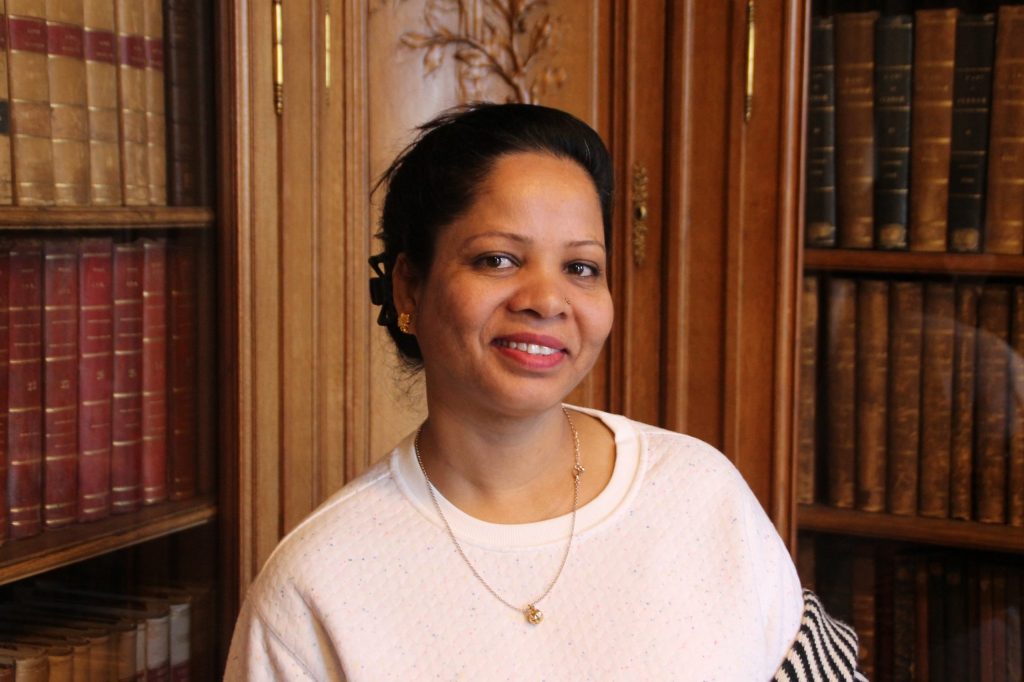During the presentation of a report on religious freedom produced by a papal charitable foundation, Asia Bibi, the Pakistani Christian who spent eight years on death row on blasphemy charges, appealed to her country’s government to put an end to this discriminatory law.
“Abolish the blasphemy law or prevent its abuse,” she said on Tuesday during the Zoom presentation of the latest Religious Freedom in the World report, published every two years by Aid to the Church in Need, a papal foundation and Catholic charity.
Her appeal was made to Pakistani Prime Minister Imran Khan.
Speaking from Canada, where she’s lived with her family since being released from prison in 2018, she called the blasphemy law as “a sword in the hands of the majority of the country, 95 percent of which is composed of Muslims. We Christians are persecuted by this law of the Pakistani Penal Code.”
Bibi also asked “the international community and the authorities in Pakistan to enforce the right to religious freedom.”
The allegations against Bibi date back to 2009, when Muslim women working with her in the fields refused to share their water because she was Christian. An argument broke out and a woman went to a local cleric to accuse Bibi of committing blasphemy against Muhammad, the founder of Islam — an incendiary charge in Muslim-majority Pakistan.
She was sentenced to death the following year but acquitted by the supreme court in 2018. Her daughters were 8 and 9 when she was first imprisoned, the oldest one has physical and mental disabilities: “When I was falsely accused, I was torn away from everything, including my daughters. And this was a psychological torture, being away from my daughters.”
But Bibi wasn’t only critical of Pakistan’s blasphemy laws: She argued that Christians in the country suffer due to several others laws that discriminate against them and allow for them to be persecuted. To make her point, she mentioned the case of several Christian girls, aged 9 to 14, who were kidnapped, sexually abused, forced into marriage and forcibly converted to Islam.
“If Islam teaches peace and harmony, how can the violence carried out in the name of religion against Christian girls and women be justified?” she asked.
Bibi also named several women who, when they tried to bring up allegations of sexual abuse to the civil authorities, were then charged with blasphemy by their abusers.
“Women are attacked, the abuser is free to roam the streets, and women are imprisoned,” she said.
During the report’s presentation, Alessandro Monteduro, director of ACN Italy, announced that, pandemic allowing, “in the coming weeks [Bibi] will be in Rome with her family.”
Bibi confirmed this and expressed the hope of being able to meet with both “Benedict XVI and Pope Francis, who have supported me and appealed for my release.”
Bibi spoke through an interpreter, lawyer Shahid Mobeen, also from Pakistan. Given the opportunity to share some of his vast knowledge on the blasphemy laws, he quoted Cardinal Joseph Coutts, who said: “The phenomenon of the kidnappings, the forced conversions and blasphemy should be confronted on the basis of fundamental human rights, more than as a religious matter.”
The state, Mobeen said, has the responsibility of providing protection and procuring justice for every citizen, regardless of their religion, culture and social class.
Thomas Heine-Geldern, executive president of ACN said Tuesday that the facts and figures regarding the worldwide violation of religious freedom documented in the new report are a source of “great concern,” and testimonies such as Bibi’s “remind us that behind all these facts and statistics there are human beings and faces, individual sad stories about suffering, discrimination and persecution.”
He said that the pontifical foundation continues to publish the report on religious freedom because it wants to “ring the alarm bell” and make the world aware that the prospect of peaceful coexistence will be dark “as long as the fundamental right to religious freedom is not respected.”
The report, released April 20, said outright persecution exists in “26 countries which are home to 3.9 billion people or just over half — 51 percent — of the world’s population,” and the most persecuted religion is Christianity.

